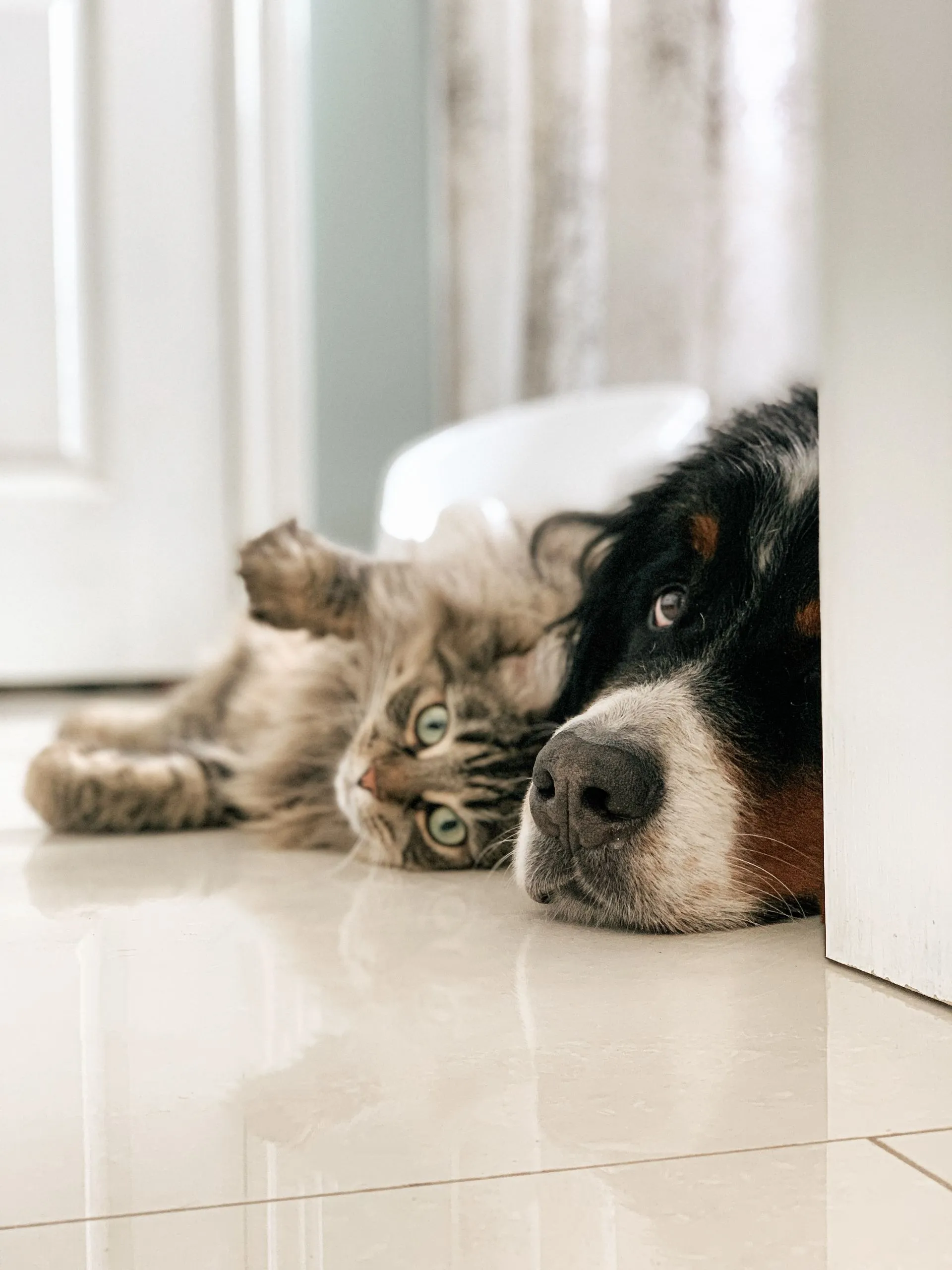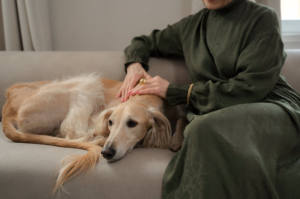This is the first of a three parts series about how our pets age, what are the most common age related diseases and what adjustments or treatments are available for us to support them.
For many of us, it is very difficult to recognise how our pets are aging. We see them every day, so their physical changes can go unnoticed until a relative or a friend who has not seen our pet for a while mentions it to us or we start seeing grey hairs (in the ones who do grow them).
So, how can we tell how old our pets are?
There has been a saying for many years in which 1 dog or cat year equals to 7 human years. This has been used a rule of thumb in order to guess how old our companions are and also as a way to educate the public on how fast a dog or a cat ages compared to a human.
However, this is not very accurate.
How dogs and cat age is not a straight line (they don’t age at the same rate during their lives). It is widely considered that the first year of a dog’s and a cat’s life equals to 15 human years. Their second year, however, is equivalent to 9 human years. After that, each additional year is thought to compare to about four or five human years.
Please, bear in mind that the ages described below are approximate.
Let’s talk cats now! Cats are indeed special and amazing creatures! There are 6 stages in the life of a cat: Kitten, Junior, Prime, Mature, Senior, and Super Senior. Our feline companions will be Kittens until they reach their first 6 months of age. Then they will be Juniors between 7 months and 2 years of age. They then become Adults and they will remain so until they get to their 6/7th year. That is when they enter their Mature years, and they will become Senior when about 10/11 years of age and until they blow their 15th candle when they will enter the stage of Super Senior (how cool is that?).
Dogs is a different story. There are, generally speaking, 4 stages in a dog’s life: Puppy, Adolescent, Adult and Senior. They consider not only the physical growth of the dog, but also their psychological development and their length varies depending on the size of the dog. All dogs are considered to be puppies until they reach 6 months of age. They enter then the Adolescent (and rebelious) stage, which lasts until they are about 1-2 years old. They will enter then into their Adulthood, which lasts until they generally get to about 7-8 years old. After that, they become Senior at which point they will (if they have not already) start to slow down and enjoy a quieter lifestyle.
Larger breeds like Great Danes, St Bernards or Newfoundlands generally live shorter lives than smaller dogs, therefore, they will age slightly differently. Their Adolescence lasts until they reach 3 years of age, and they will become Seniors at about 5-6 years of age.
Aging impacts in our pets in many ways (from their immune system to their organs, including their behaviour and cognitive function), so the better we understand our pets’ age, the more we can do to help them to live long and healthy lives. There are several diseases that are likely to develop during our pets’ adult and senior stages. Osteoarthritis; dental, kidney or liver disease; hyper or hypothyroidism and cognitive dysfunction are among the most common.
In the second part of this series, we will explain in more detail these common diseases and their symptoms so we can take action sooner rather than later.
Please, contact us if you have any concerns about your pet’s health, regardless of their age.







